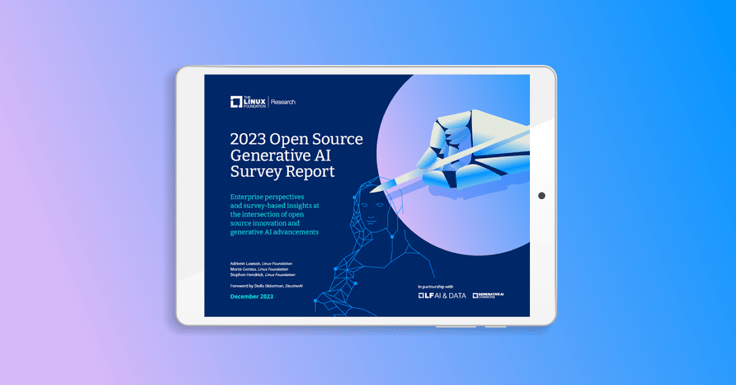LF Research GenAI Survey Report Reveals That Open Models Offer Greater Value for Business
Anna Hermansen | 31 January 2024
In the recent explosion of generative artificial intelligence (GenAI), the debate between open and closed solutions has been a focal point. Which type is safer, more accessible, more ethical? And ultimately, which do organizations want to use most? To help answer these questions, Linux Foundation Research fielded a survey to understand how and why businesses are using GenAI, the analysis and insights from which culminated in the recently published 2023 Open Source Generative AI Survey Report. Some exciting key findings are detailed below:
- GenAI is emerging as a critical component for businesses. The report reveals that 50% of surveyed organizations are already using GenAI in a production context, illustrating its integration into real-world applications.
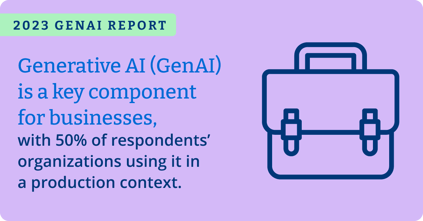
- GenAI is an important part of future planning. A majority of companies (60%) express a strong commitment to GenAI, with plans to significantly invest in the technology. This dedication is further emphasized by 63% of companies considering GenAI as extremely or moderately important for their future plans. This points to a growing recognition of GenAI's transformative potential across various industries.
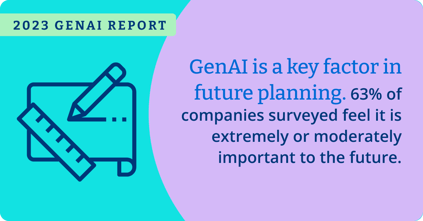
- Businesses are interested in customization and integration. The survey underlines the trend of businesses tailoring GenAI technologies to meet their specific needs. Whether embedding them in existing products or creating entirely new ones, organizations are leveraging GenAI as a versatile tool for innovation and product development.
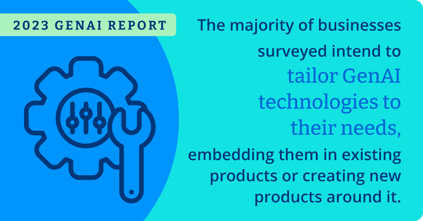
- Open source is preferred. 41% of organizations express a preference for open source GenAI technologies, while only 9% lean towards proprietary solutions. This preference is indicative of a growing inclination towards transparency, collaboration, and innovation within the AI community.
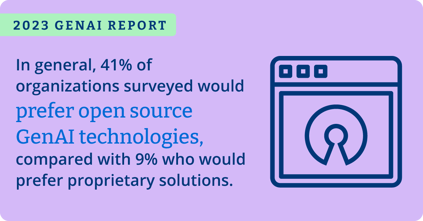
- Security remains a primary concern hindering the deployment of GenAI-related projects. Interestingly, the report reveals that proprietary solutions are not perceived as more secure than open source alternatives. This challenges the traditional notion that closed systems inherently offer superior security.
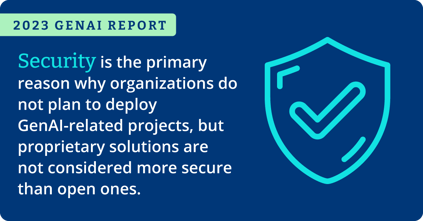
- Open source allows for collaboration and innovation. Open source GenAI is considered superior in supporting collaboration, innovation, and ease of integration, according to the respondents. This sentiment aligns with the foundational principles of open source development, emphasizing community-driven contributions and shared knowledge.
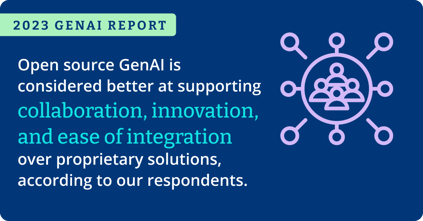
- Open source increases data control and transparency. The majority of respondents believe that open source GenAI leads to increased data control and transparency. This perception reflects a broader push for accountability and visibility, especially as AI applications become more embedded in critical decision-making processes.
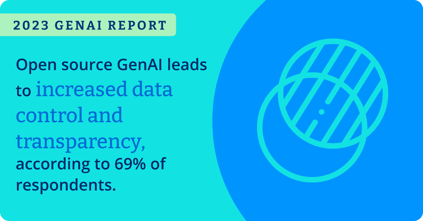
- Open and closed solutions are equally scalable and accurate. The report finds an equal preference among respondents for both proprietary and open source solutions when it comes to scalability and accuracy. This suggests that, in the eyes of the respondents, both approaches have their merits in terms of the performance of GenAI technologies.
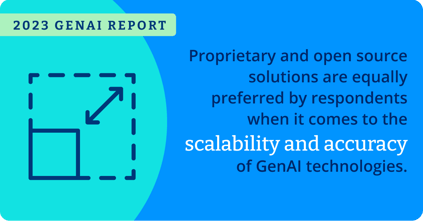
- Neutral governance is critical. An overwhelming 95% of respondents emphasize the importance of neutrality in GenAI governance. This underscores the need for ethical considerations and unbiased decision-making processes, aligning with the growing discourse on responsible AI development.
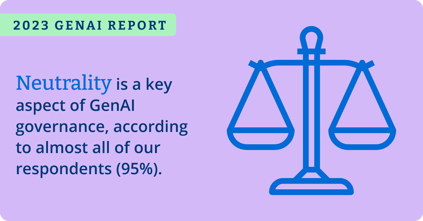
- Long-term sustainability is a consideration for open source solutions. Looking towards the future, the report indicates a preference for open source solutions (43%) over proprietary ones (32%) for the long-term sustainability of GenAI. This preference reflects a belief in the resilience and adaptability of open source models, fostering continuous improvement and community-driven advancements.
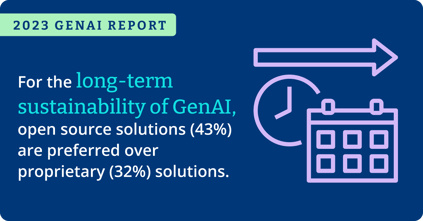
The 2023 Open Source Generative AI Survey Report provides a snapshot of the current state of GenAI adoption as organizations weigh the ethical considerations for open and closed AI systems. As businesses increasingly recognize the transformative potential of GenAI, they should consider open models that provide greater transparency and collaboration, and improved pathways for integration. Stakeholders across industries, from AI developers to business executives, can also benefit from becoming actively involved in open ecosystems such as LF AI and Data Foundation, the PyTorch Foundation, and other open source project communities, as a means to further support their adoption and implementation journeys and to reap the benefits from community-wide knowledge, best practices, and beyond.
